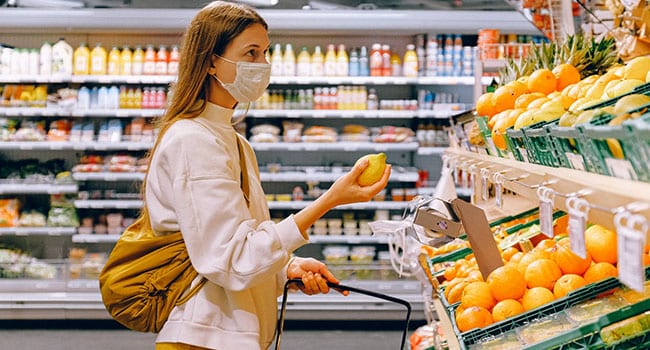 Food waste creates an invisible bill you must pay every day.
Food waste creates an invisible bill you must pay every day.
Before the COVID-19 pandemic, the average Canadian household wasted a little more than two kg in food a week.
But since March, our lives have changed and most Canadians have spent more time at home. So are Canadians generating more food waste at home? And did the hoarding we witnessed early on generate more waste?
Dalhousie University has just given us some answers.
A self-reporting survey suggests Canadians may be wasting more food during the pandemic.
Survey respondents estimated their household generated about 2.03 kg per week of organic food waste (avoidable and unavoidable) before the pandemic. Now, the survey suggests the average Canadian household generates 2.30 kg of organic food waste (avoidable and unavoidable), an increase of 13.5 per cent. This is consistent with early data released by some Canadian municipalities.
Based on our modelling, Canadian households have generated 20 to 24 million kg of additional organic waste a month since the start of the pandemic.
According to a recent study on domestic food waste, about 2.16 billion kg of food, or more than $20 billion worth, is lost. This creates an annual cost of avoidable food loss and waste in Canada of $1,766 per household. And COVID-19 may have increased costs by $238 per household, or $2.95 billion for the entire country.
Nonetheless, it’s not clear whether households are generating more waste than before the pandemic, proportionally, given that Canadians are eating more often at home. We bring more food into our homes, so it only makes sense to waste a little more. A total of 55.4 per cent of respondents believe they’re wasting less food in percentage of volume compared to before the pandemic. Despite the increase in volume, this could be good news.
Respondents also reported doing some interesting things more often since the start of the pandemic to reduce food waste:
- “Eating leftovers more often,” 34.5 per cent, was the most popular measure;
- f“Looking through the refrigerator and cupboards more often,” 24.4 per cent, was next;
- “Preserving, freezing and canning food more often” was the third most popular choice at 22.5 per cent.
Behaviours are clearly changing in homes across the country.
But here’s a shocker: The survey also asked whether respondents threw away food believing it was contaminated by COVID-19, which would in turn generate more waste. Ten per cent of Canadians reported throwing away food they believed was contaminated with COVID-19. Quebec had the highest percentage (14), followed by British Columbia (13 per cent).
That’s a lot of good food thrown away for a reason with no scientific basis. Unlike salmonella or E. coli, which can spread, COVID-19 won’t survive or multiply on most surfaces. The U.S. Centers for Disease Control and Prevention and the Canadian Food Inspection Agency have been very clear on this. Yet people are still doing it. Fear is making us waste more.
Expiry dates or best-before dates, another source of fear, were an issue even before the pandemic. The way Canadians consider those packaging notices has also changed. Some Canadians have been eating food past their expiration dates more often since the start of the pandemic to reduce waste. But while 12.7 per cent are doing this more often since the start of the pandemic, 18.7 per cent are doing it less often. A total of 20.0 per cent of those surveyed never eat food products past their expiration dates.
Manitoba has the highest percentage of people who have eaten food beyond their expiration date more often since the start of the pandemic (14.8 per cent), while Quebec had the lowest (8.6% per cent). Clearly, these best-before dates are still scaring us.
The report suggests we may be wasting less proportionally. But still, $2,000 per household is a lot of money, especially for families who can’t afford higher food prices right now.
If you want to save, don’t panic buy (ever), consider expiry dates as a suggestion if your health permits, and don’t throw away food if you believe it’s COVID-19 contaminated, because it can’t be.
Our risk-obsessed society needs a break. So does your wallet.
Dr. Sylvain Charlebois is senior director of the agri-food analytics lab and a professor in food distribution and policy at Dalhousie University.
Sylvain is a Troy Media Thought Leader. Why aren’t you?
The views, opinions and positions expressed by columnists and contributors are the author’s alone. They do not inherently or expressly reflect the views, opinions and/or positions of our publication.

